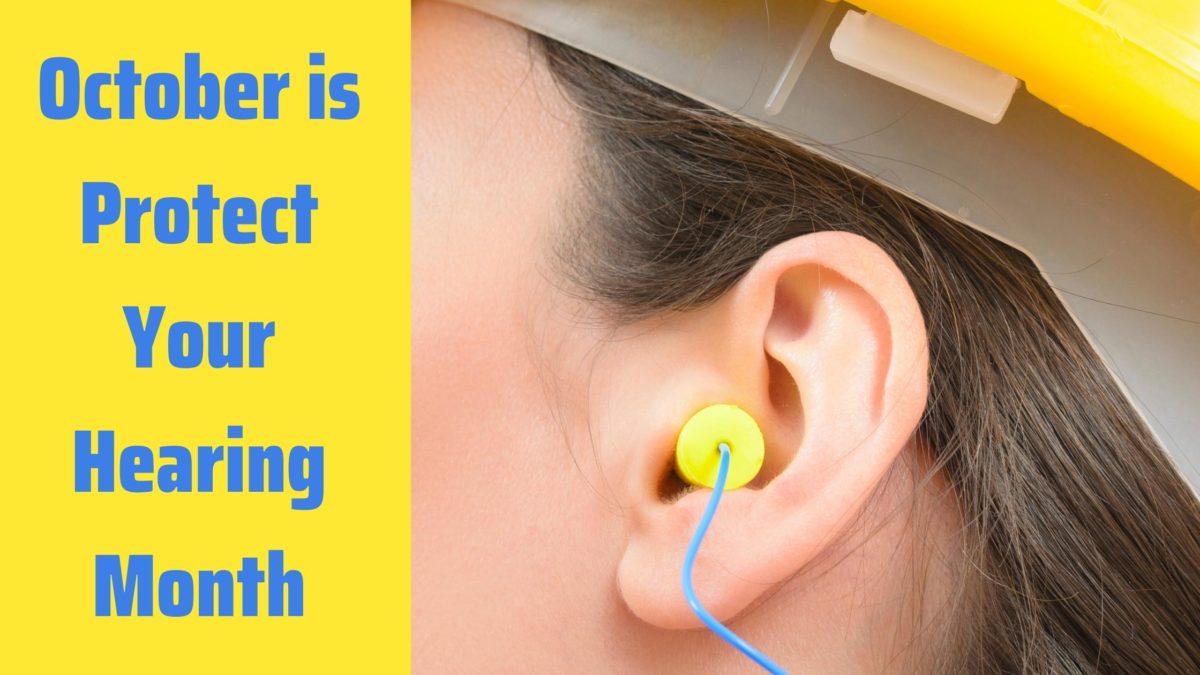
October is Protect Your Hearing Month
Whether it is the smell of pumpkin spice in the air, or bursting displays of trick-or-treat candy, it’s easy to tell when October rolls around. This month isn’t just about autumn traditions though, it is also Protect Your Hearing Month, an important time to raise awareness about hearing health.
While most people understand that loud noise is harmful to hearing, few people register that hearing damage is often permanent and that permanent hearing damage contributes to hearing loss. Let’s take a look at how hearing loss develops, and what can be done to reduce your risk.
How Your Hearing Works
Your sense of hearing is nothing short of a biological miracle. The human auditory system helps us respond instantaneously to noises in our environment, even subtle sound information like soft whispers or the tonal nuances that distinguish a familiar voice. How does your hearing work exactly? When a sound is made, the air vibrates sending soundwaves out in all directions. Our cone-shaped ears essentially “catch” these soundwaves and funnel them towards our inner ear. There are many components to the auditory system, but we are especially reliant on small sensory cells that line the inner ear, past the eardrum. These “hair” cells have the critical job of detecting the vibrations of sound waves in the air and transmitting the sensation to the brain to be interpreted.
Hair Cells and Hearing Loss
Hair cells are the part of your auditory system in need of the most protection. The cells are tiny and fragile and our body has no means of repairing or replacing them if they become damaged. Unfortunately, exposure to loud noises can stress hair cells to their breaking point. When you fail to protect your hearing from excessive noise, the chances are it will cause some hair cells to be damaged beyond repair.
Sometimes significant hearing loss can happen suddenly, but in most cases it is a gradual process. Our ability to hear worsens as more and more permanent damage happens to our hair cells. That is, the less functioning hair cells we have, the less accurate our hearing becomes. While we often think of hearing loss as something that happens to older adults, we lay the groundwork for our hearing health throughout our life.
Protecting Your Hearing
Lifelong healthy hearing requires protecting yourself from excessively loud noises. Loud sounds can cause permanent damage in a surprisingly short amount of time. Loud workplaces, like a factory or construction site, often have an operational sound level around 85 dB, which can damage hearing permanently with 8 hours of exposure. A rock concert or loud music event, usually amplified to volumes around 105 dB will damage hearing in under 10 minutes and
very loud sounds like gunshots or fireworks damage hearing instantaneously.
To protect your hearing, be prepared. Avoid loud sound whenever possible, and when it isn’t a possibility dampen the sound level with hearing protection. Carry a set of ear plugs or earmuffs with you that you can wear when your sound environment gets loud. Loud workplaces are required by safety regulation to provide you with appropriate hearing protection. If you often find yourself around loud noise settings, you may want to invest in custom ear plugs which are reusable hearing protection molded to the shape of your ear canal for a comfortable, easy fit.
Another important part of understanding your hearing health is getting regular hearing exams. Hearing exams offer comprehensive testing for hearing loss and other auditory issues. While many people procrastinate on getting a hearing issue examined, the earlier hearing loss is treated, the easier it is for our hearing to adapt to treatment. Letting hearing problems linger not only allows them to worsen, it fundamentally reshapes the way our auditory system “hears”, making it harder to adjust to treatment solutions like hearing aids.
Addressing Your Hearing Health
Protecting your hearing is important! Remember, permanent hearing loss can occur easily whenever you fail to protect yourself from loud noise. Damage to the delicate sensory cells of the ear cannot be reversed, but when damage has occurred, hearing loss can be effectively managed with hearing aids. Want to know more about what’s best for your hearing health? Connect with us today, for hearing testing and guidance!
